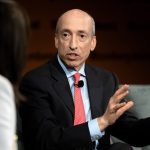Elon Musk today waded into the Ukraine-Russia war with a peace plan that was . . . not very well-received. It may have been a tactic to distract industry watchers from Tesla’s third-quarter vehicle production and delivery numbers for 2022, which fell short of analysts’ expectations. But it was a knuckle-headed tactic if so, and one of a growing series of missteps that must have many in Musk’s sphere wondering what to do.
The problem most immediately was a four-part proposal that Musk tweeted out to his 107 million followers on the platform, one that involved recognizing Russia’s claims to the Crimean peninsula — which Russia illegally annexed from Ukraine in 2014 — and a commitment from Ukraine to remain neutral and not join NATO. (Ukraine applied for accelerated accession to NATO late last week.)
Musk also suggested redoing the sham referendums on the annexation of occupied territories of Ukraine by Russia (referendums held last month by Russian-installed officials in Ukraine), instead letting “the people” decide; and ensuring Crimea’s access to water. (Ukraine had built a dam to cut off Crimea’s primary water supply in retaliation to Russia seizing the Crimean Peninsula eight years ago; that dam was blown up back in February, two days into Russia’s invasion of Ukraine.)
Musk included a poll in this proposal, asking if people agreed or disagreed with his peace plan.
Reader, they did not. Citing “Russia vibes,” followers accused Musk of fundamentally misunderstanding what is at stake in the war and of pushing Russia propaganda. Ukrainian diplomat Andrij Melnyk summed up widespread sentiment when he tweeted to Musk, “Fuck off is my very diplomatic reply to you @elonmusk.”
Even Ukraine President Volodymyr Zelensky weighed in, publishing his own poll, asking his far fewer 6.6 million followers which @elonmusk they like more, the one who is pro-Ukraine, or the one who is pro-Russia.
Which @elonmusk do you like more?
— Володимир Зеленський (@ZelenskyyUa) October 3, 2022
Musk certainly lost much of the goodwill generated by sending SpaceX’s Starlink terminals to Ukraine to boost Internet access in the country. (Starlink appears to have been paid for these by the U.S. government.) In the meantime, Musk’s employees and company shareholders must be shaking their heads as, once again, Musk dives somewhat casually into a knotty issue beyond his expertise. (It was obvious from the moment Musk announced plans to buy Twitter in late April that he didn’t have a very good understanding of the sundry challenges facing the company or an actual game plan to fix it.)
Musk is glaringly brilliant about a lot of things, including his use of Twitter, which keeps him in the headlines, despite Tesla long ago doing away with any kind of traditional PR function. He may have good intentions. (It’s not always clear.) Yet he undermines himself when he spouts off on Twitter about things on which he is not an authority.
Some argue it doesn’t matter, it doesn’t impact sales, Tesla owners who disapprove of Musk still love their cars. But someday in the not-too-distant future, with no shortage of companies nipping at Tesla’s heels and a growing stack of reasons for people to look at other manufacturers’ cars, that could change.
We’d surprised if recruiting efforts aren’t already being impacted by some of the headlines that Musk has generated this year. While engineers might have rushed to work for Tesla or SpaceX in the past because of its visionary leader, Musk’s various pronouncements are likely giving more of them pause. (Is this guy serious? Is he sane? Does he have any self-control?) It can’t help that Musk, whose management style has been described as ruthless, showed zero concern for the engineering talent inside Twitter, treating the company like a bauble that he wanted, then unabashedly trashing it.
Becoming a business icon has been very good for business, and Musk’s addiction to fame has helped fuel his rise to the top of the corporate world, but there is always a tipping point. What comes up must come down eventually, however, and by needlessly alienating wide swaths of people — in Ukraine, inside Twitter, within his own customer and employee bases and beyond these — he’s almost certainly speeding this process along. For his own reasons, maybe that’s as he intends it. If not, Musk might take a lesson from Tesla’s own well-meaning, if flawed, self-driving software and stay in his lane.
As tweeted the account for the newspaper Kyiv Post earlier today, referencing Musk’s native South Africa: “Elon, you’re a cool guy and thanks for the Starlink but it’d be so very wonderful if you were to carry out votes on things that you know about. We don’t carry out votes on apartheid and Nelson Mandela.”
Elon Musk stepped in it again today — “F#ck off is my very diplomatic reply to you” by Connie Loizos originally published on TechCrunch






